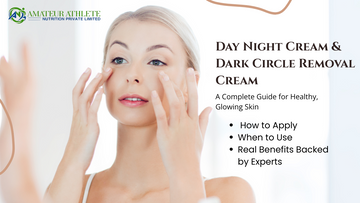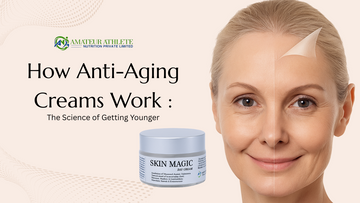Dark spots, uneven skin tone, and pigmentation are issues that are common to most people, especially in a country like India, where pollution and sun damage have a detrimental effect on the skin. Having the best night cream for pigmentation is what makes the biggest difference. The following is a detailed tutorial on how night creams work, what to anticipate from the ingredients, and how to use them in order to achieve optimum results.
```
Why Does Pigmentation Happen?
Pigmentation happens because your skin produces melanin, the pigment content of the skin, in excess. It happens due to a host of reasons:
- Sunlight exposure: The UV rays cause the excessive production of melanin, leading to sun spots.
- Hormonal fluctuation: Melasma due to pregnancy or hormonal imbalance.
- Acne scarring: Post-inflammatory hyperpigmentation after pimple healing.
- Ageing: Age spots, or liver spots, appear with age.
How Night Creams Interact with Pigmentation
Your nighttime skin renewal is your skin's best time to be cared for, so it only makes sense to treat your skin at night. The best night cream for pigmentation acts in many different ways:
- Suppresses melanin production, so that it will not form new spots.
- Stimulates cell turnover to eliminate old dark spots.
- Restores and moisturizes to restore the skin barrier.
Ingredients to Look for in a Pigmentation Night Cream
A good night cream should contain a brightening, soothing, and healing blend:
- Vitamin C – A powerful antioxidant that bleaches dark spots and balances tone.
- Niacinamide (Vitamin B3) – Inhibits melanin transfer to skin cells and soothes inflammation.
- Retinol – Boosts collagen synthesis and stimulates cell turnover.
- Licorice extract – Natural brightener used to whiten pigmentation.
- Kojic acid – Blocks melanin formation.
- Hyaluronic acid – Blocks drying of skin and maintains firmness.
Using Night Cream for Pigmentation
- ✔ Wash your face nicely to remove make-up and dirt.
- ✔ Use toner if it is a part of your routine.
- ✔ Use pea-sized amount of night cream.
- ✔ Massage in circular motions.
- ✔ Be consistent — Use daily for maximum effectiveness.
Tip: Use your night cream always as well as sunblock during the day. Sun protection prevents further pigmentation.
How Long Does It Take to See Results?
You will have to wait. You would begin noticing light improvements in 2-4 weeks, but complete lightening of melanin dark spots following consistent use of 8-12 weeks is usually the rule. The timeline would differ depending on how intense the pigmentation is as well as your skin tone.
Realistic FAQs
Q1: Do I use night cream for pigmentation daily?
Yes, except in the case of night creams with high-actives like high-dose retinol. Start at 2-3 times a week and gradually increase as required based on how well your skin is adjusting.
Q2: Is night cream sufficient on its own to erase pigmentation?
Night cream is only one component of the treatment. For the whole effect to be achieved, use it along with sunscreen, healthy food, and occasional dermatological procedures like peels or lasers.
Q3: Do natural night creams correct pigmentation?
They can be applied, yes, on products with natural actives like licorice, kojic acid, and vitamin C. They may work more slowly than high-actives.
Q4: Oily or acne skin, can it use night creams for pigmentation?
Yes. Use non-comedogenic preparations, which will not clog pores.
Q5: What not to do when correcting pigmentation?
Steer clear of too much sunlight, abrasive scrubs, and skin picking since they will most probably exacerbate pigmentation.
Final Thoughts
Buying the best night cream for pigmentation is half the road to healthier, properly textured skin. Buy creams with proven ingredients, use them every day, and commit to everyday care for your skin. Use respected websites such as Athlete Nutrition's Night Cream for Pigmentation in an effort to begin your path towards healthier, better-looking skin.





